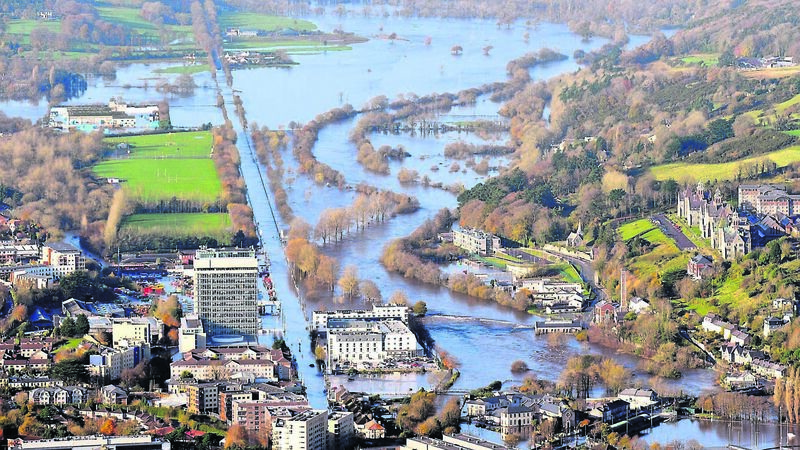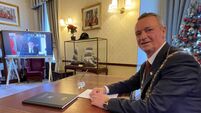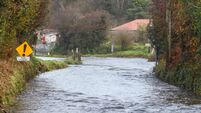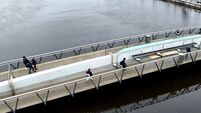'We must tackle this and get serious': Cork in the eye of climate change storm

Flooding on Carrigrohane Rd and the Lee Fields area in Cork following the heavy rainfall in 2009. Dr Dwyer said ‘although few millimetres per year doesn’t sound a lot, when you put that on top of a high tide and a storm surge, then you can get pretty significant coastal flooding during those types of events.’ Picture: Denis Minihane
The Status of Ireland’s Climate study says that greenhouse gas levels hit a record high in 2019, rainfall increased by 6% in recent decades, and the country’s temperature has risen by 1C over the last century.
Sea levels have risen by about 16cm since the foundation of the State, bringing with it the risk of “significant coastal flooding”, one of the report’s authors has said.
The joint study by the Environmental Protection Agency, Met Éireann, and the Marine Institute has painted a stark picture of the impact of climate change in Ireland, following on from the report of the UN’s intergovernmental panel on climate change, which warned of a “code red for humanity”.
Co-author Dr Ned Dwyer, an academic at UCC, said the report shows Ireland must act.
“The temperature across the country has increased by about a degree over the last 100 years, which is in line with what we’re seeing globally. The rainfall amounts have increased by about 6% over the last few decades.
“In fact, work done at Maynooth University showed us the rainfall in the period 2006 to 2015, was the wettest period since at least 1700.
Cork City has experienced significant flooding a number of times in recent years.
More compact growth critical to #corks future. Dev plan 2022-28 sets docklands and tivoli as pivotal areas to achieving this objective. In the absence of a tidal barrier: What developers in their right mind would start investing millions in these areas?? #ClimateEmergency pic.twitter.com/NH7UZczEMg
— Frank Crowley (@frankgcrowley) August 13, 2021

‘The Status of Ireland’s Climate 2020’ shows Ireland’s climate is warmer & wetter than it used to be. Increases in carbon dioxide, methane & nitrous oxide are leading to sea level rise, increased ocean acidity & higher ocean temps https://t.co/6G5UnEGd3F #IrishClimateStatus pic.twitter.com/fjl9EKSxQD
— EPA Ireland (@EPAIreland) August 12, 2021










 App?
App?


